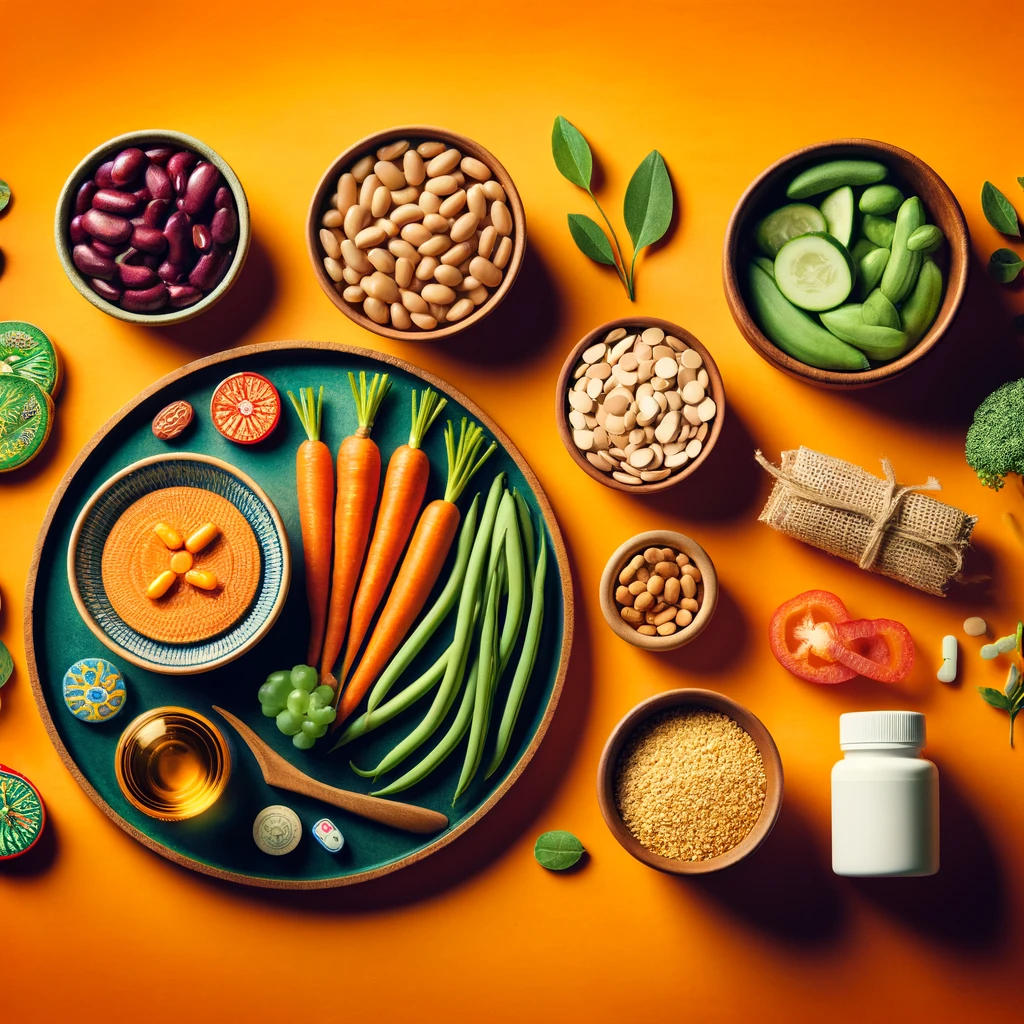Pregnancy Nutrition: Top Key Guidelines for the First Trimester
Nutritional Needs During the First Trimester
The first trimester is a critical stage in pregnancy, with substantial physiological changes and developmental milestones for the fetus. Proper diet during these early stages is critical to ensuring the health and well-being of both the mother and the infant. This article discusses the importance of pregnancy nutrition, focusing on specific foods such as beans and rice, the impact of prenatal vitamins, and the long-term repercussions of nutritional decisions made throughout pregnancy and lactation.
What is meant by the term “nutrition,” and why is it so vital during pregnancy? In order to provide your body with the nutrients it requires during pregnancy, nutrition entails consuming a diet that is both nutritious and well-balanced. Nutrients are substances that are found in foods and are necessary for our bodies to have in order to function and flourish. Carbohydrates, lipids, proteins, vitamins, minerals, and water are all components of this category.
The importance of a proper diet cannot be overstated while one is pregnant. More of a variety of essential nutrients are required of you than you did before you became pregnant. If you make healthy food choices on a daily basis, you will be able to provide your child with the nutrients that are necessary for his or her development. In addition to this, it will assist in ensuring that both you and your baby gain the appropriate amount of weight.
The Importance of Nutrition During Pregnancy
Nutrition during pregnancy has long-term consequences for both the mother and the baby, in addition to its acute health effects. Adequate nutritional intake promotes fetal growth and development while also preparing the mother’s body for lactation. Nutritional deficits can result in consequences such as premature birth, low birth weight, and long-term developmental issues in children. Thus, understanding and implementing a balanced diet is critical.
Key Nutrients and Foods as Pregnancy Nutrition Foods
1. Beans: Beans are an excellent source of protein, fiber, iron, and folate, all of which are required during pregnancy. Protein promotes overall growth, iron combats anemia by assisting in the formation of hemoglobin, and folate is essential for preventing neural tube defects. Including a variety of beans in your diet ensures that these nutrients are sufficiently supplied.

2. Rice: Rice, particularly whole grain or fortified versions, can be useful during pregnancy. It gives energy through carbs and is often gentle on the stomach for people who suffer from morning sickness. However, it should be used in moderation in order to maintain a healthy diet.
3. Carrots: High in beta-carotene, which the body transforms into vitamin A, carrots are beneficial to both the mother’s and baby’s vision, skin, and immune systems. They are also high in fiber, which can help avoid constipation, a common problem during pregnancy.
Prenatal vitamins: Are they necessary for everyone?
Prenatal vitamins are specifically created to suit the nutritional requirements of pregnant women. They are critical for replacing nutritional gaps in a pregnant woman’s diet, including folic acid, iron, calcium, and DHA. The question of whether a non-pregnant woman should take prenatal vitamins is context-dependent. These vitamins are typically safe, but they should be taken as directed by a doctor if pregnant or as part of a special health plan.
Nutrition during pregnancy and lactation has long-term consequences.
The diet followed during pregnancy and lactation can have a significant impact on the long-term health of both the mother and child. Adequate nutrition lowers the risk of future chronic illnesses in children, including diabetes, heart disease, and obesity. A balanced diet helps mothers recover faster after childbirth and lowers the chance of postnatal problems.
Practical Tips to Maintain Optimal Nutrition in the First Trimester

Variety is key. To meet all nutritional needs, eat a variety of fruits, vegetables, whole grains, protein sources, and dairy.
Moderation in quantities: While it is vital to slightly increase calorie intake, avoid the mistake of “eating for two” by doubling quantities.
Hydration: Consume plenty of fluids. Water aids digestion, food absorption, and maintains amniotic fluid levels.
Regular meals: Eating small, regular meals can aid with nausea and provide a consistent supply of nutrition to the baby.
The first trimester is an important period to lay the groundwork for future health through nutrition. Pregnant women can have a substantial impact on their children’s future health and well-being by following a balanced diet rich in key nutrients and supplementing with prenatal vitamins as needed. Remember that, while certain foods, such as beans, rice, and carrots, provide unique benefits, the overall dietary pattern is most important in getting the greatest outcomes for both mother and baby.


[…] often appear in the middle of the second to third trimester of pregnancy (28 weeks or earlier), although they may develop at any […]